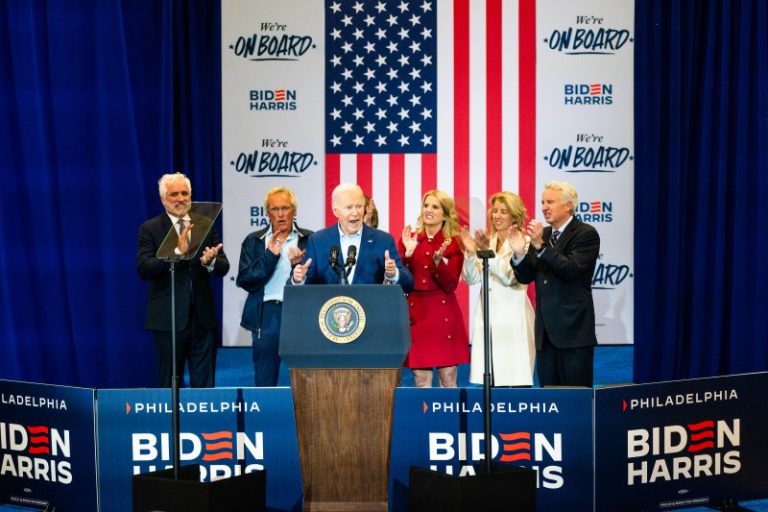Upon hearing that members of the Kennedy family would be appearing with President Biden at a campaign event on Thursday, my first thought went to another large family: the Gosars.
You are probably less familiar with the Gosar family, if you’re familiar at all. Their imprint on American politics is necessarily more modest than the Kennedys’, constituting one person who won election to the U.S. House. That person is Rep. Paul A. Gosar (R-Ariz.), and he won reelection to his seat despite six of his nine siblings endorsing his opponent in 2018.
Not just endorsing, either. They appeared in an ad for Democrat David Brill, calling out Gosar and asking voters in his House district to kick him out. The advertisement earned national headlines, as you might expect, and established Gosar as one of the most contentious candidates in American political history.
On Election Day, Democrats romped, regaining a majority in the House. But not Gosar’s seat. He won by more than a 2-to-1 margin.
So, to recap: In a race where perhaps the only thing that people might have heard about Paul A. Gosar was that his family very much didn’t want you to support him, Gosar still won handily in an election year that was a rough one for his party. And we’re supposed to assume that a group of Kennedys endorsing Biden will cement support for the incumbent despite Robert F. Kennedy Jr. appearing on the ballot?
It is true that John F. Kennedy, RFK Jr.’s uncle, is one of the best-regarded presidents in American history. Last year, Gallup reported that 9 in 10 Americans viewed his presidency favorably, including 9 in 10 Republicans. That overall number was 20 points higher than the next most popular president, Ronald Reagan.
As you might expect, older Americans were a bit more likely to view Kennedy’s presidency favorably. Americans 55 and older viewed Kennedy’s presidency with approval by an 88-point margin; Americans under 35 did so by a 76-point one. But even a 55-year-old wasn’t someone who voted for Kennedy when he was on the ballot. They weren’t born when Kennedy was president.
The youngest Americans who could have voted for Kennedy are now at least 84. Only about 2 percent of Americans are at least that old. But many of them probably didn’t vote for him anyway. The American National Election Study from 1960 found that a quarter of those 25-34 in 1960 didn’t vote; among younger voters, 40 percent didn’t. And of those who voted, just under half voted for Richard M. Nixon.
The theory of the Biden endorsement, it seems, is that some portion of RFK Jr.’s support is derived from the positive associations engendered by his name. A super PAC backing Kennedy seemed to think that was a safe bet, running an ad during the Super Bowl that explicitly evoked John F. Kennedy’s 1960 campaign to promote his nephew’s this year. (RFK Jr. embraced and then disavowed the ad; one of the major donors to the PAC was Nicole Shanahan, now Kennedy’s running mate.)
If nostalgia is boosting Kennedy’s campaign, it isn’t boosting it much. A recent YouGov poll, conducted for the Economist, indicated that only 3 percent of Americans backed Kennedy’s bid. There was not a significant difference in support by age.
Beyond that there aren’t a lot of 1960 Kennedy votes left, that election does offer another important lesson. It was a remarkably close race, one in which small margins in some states likely made the difference. And that’s why it’s useful for Biden to stand onstage with a phalanx of Kennedys: If he can keep a handful of votes from being wooed by the Kennedy name to back RFK Jr., those are votes that might just hold Wisconsin, Arizona or Michigan for the incumbent.
It might also have the effect that the Gosar family’s unified approach did: none.

